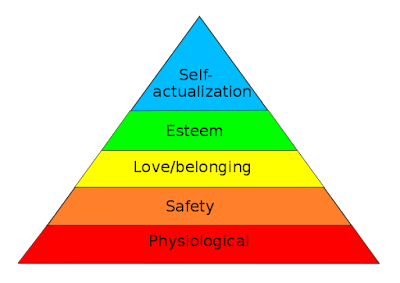5 Reasons Nigerians Die Early And How To Tackle Them
The life expectancy in Nigeria, a country of one
hundred and seventy (170) million inhabitants, is 53.4 years for men and 55.6
years for women. This means that a man who dies at 53 or a woman who dies at 56
has not died young, he or she has died at the expected age for Nigerians.
It is a mind-boggling figure. It is even more
mind-boggling when you realise that the country with the lowest life expectancy
in Europe, Moldova, has a life expectancy of 71.
Worldwide, the average life expectancy at birth was
71.5 years over the period 2010 – 2015 according to the United Nations World
Population prospects 2015 Revision. Nigeria is 17 years below the average.
Nigeria is also at an abysmal 177th (six places to the last) among the nations
in the world on the life expectancy list with an average life expectancy of
54.5 years.
When there is an effect, there is always a cause.
What are the causes of Nigeria’s low life expectancy? Despite being an oil-rich
nation? Below are some of the reasons for the low life expectancy in Nigeria.
1.
Anxiety
Even though anxiety may be a cause of early death,
it is an effect that has many causes in various endeavours of human life. A
study has shown that even low level of anxiety or distress is linked to an increased risk of death.
The study found that people who sometimes stayed
awake at night worrying were about 20% more likely to die over a 10-year period
compared to people who reported no such symptoms.
In Nigeria, there is a lot of anxiety to go round.
Many people have anxiety for various reasons. Some people are in constant state
of worry due to national economic woes that are affecting their various businesses
and consequently their economic life. Some people work for private and
government establishments and are constantly owed salaries for months.
These people are unable to meet most of their basic
needs like feeding their families, providing a good education for their
children, clothing and basic needs. There are many university graduates who are
unemployed and worry constantly about getting a job and meeting their needs.
These result into anxiety for many people.
Anxiety itself has been known to have links with
health problems. One of them is short-term hypertension as anxiety causes
temporary spikes in blood pressure.
According to Sheldon G. Sheps of Mayo Clinic, if temporary
spikes in blood pressure occur frequently, for example daily, they can cause
damage to your blood vessels, heart and kidneys, as can chronic high blood
pressure.
Anxiety in many people also lead to unhealthy habits
like smoking, drinking alcohol, overeating, etc. that can increase blood
pressure.
Dr. Bacon, a Heart and Stroke Foundation researcher
at the Montreal Heart Institute said: “People with anxiety disorders are four
times more likely to develop high blood pressure (hypertension) over one year
than those of us who are anxiety free. Hypertension is a leading risk factor
for stroke and heart disease.”
According to the World Health Organization, 46 % of
adults in African countries are hypertensive with adult males tending to have a
higher mean systolic blood pressure than adult females. Nigeria topped the list
with 51 percent of males and 49 percent of females suffering from hypertension.
What can we do about anxiety? It is important to
know that anxiety does not change anything or solve any problem. Make a plan to
change whatever situation you are in and commit yourself to the plan and take
necessary actions.
This is one way that has a better chance of solving
your problem without causing unnecessary health problems.
2.
Bad governance
With a country that is one of the biggest oil
producers in the world, you’d expect that most of the population would at least
be to meet its basic need. If you expected that, you’d be wrong because that is
far from the case. Most people still struggle to meet their basic needs.
The biggest cause of this is bad governance where
the leaders compete with themselves on how much money they can embezzle. How
does bad governance cause an early death for people?
There are many cases we can consider and I will
state some of them here. Many people have been involved in transportation
accidents due to bad roads and low transportation standard caused by the
government’s negligence of the transportation sector. Some of these people die
as a result of accidents.
One other example is the health sector. Many have
died because they have been unable to receive emergency health care needed.
This is because many government hospitals are under-equipped and many Nigerians
can’t afford the care provided by the private hospitals.
Due to low information penetration, many have been
unable to have access to health information that would have been life-saving in
some situations. A case in point of how under-equipped Nigeria’s health sector
is is the recent treatment of Nigeria’s president, Muhammadu Buhari, at a
London hospital for more than three months.
Nigerians can battle the issue of bad governance by
making their votes count and voting for the person you think will represent
your best interest.
3.
Bad diet
The most popular foods in Nigeria are
carbohydrates. Rice is probably by far the most popular food in Nigeria and
crops like yam and cassava are converted into many popular foods.
Very few people eat a balanced diet. Some, because
they are financially incapable while some are just ignorant about it. Many are
economically capable of buying fruits and vegetables but instead buy sugary
drinks and highly processed food.
This makes it difficult to regard bad diet as just
a problem caused by poverty. Too many people take too many bottles of soft
drink that keep accumulating sugar in their body systems.
According to a study by the World Health
Organization, diabetes is on the rise in Nigeria. This is caused majorly by a
change in diet as a result of urbanization. More people now depend on fast
foods that are high in refined sugar.
Japan is the country with the highest life
expectancy at 83.7 years. One of the major contributors to their high life
expectancy is their diet. So, good diet does really have an effect on whether
you live long or not.
Food is the fuel that runs our body and when you
put polluted fuel in an engine for too long, the engine begins to have
problems.
There are many ways to battle the issue of bad
diet. You can make a timetable for the food that you will consume throughout a
week and make sure the foods on the timetable are balanced diet.
You can also have a target to eat at least one
fruit daily and include as much vegetable in your food as possible.
4.
Lack of exercise
When you tell some people you are going for an
exercise or that they should do more exercise, they look at you like an
unserious individual, and tell you that their work is enough exercise for them.
But work and exercise are not mutually exclusive. A
man who does his exercise also has to work. In fact, it is good for work when
you do exercise daily because it can help relieve stress that comes with work.
Exercise also makes you more energetic and feel good.
Another benefit of exercise is that it can make you
live longer. The World Health Organization (W. H. O.) recommends that adults
should do at least 150 minutes of moderate-intensity aerobic physical activity
throughout the week or at least 75 minutes of vigorous-intensity aerobic
physical activity.
Studies have shown that people who completed 150
minutes of exercise had 31 percent less risk of early death than people who did
not exercise. It was also found that people who did 450 minutes of exercise had
39 percent less risk of early death.
Many have neglected exercise and the benefits have
also evaded them.
To harness the benefits of exercise, you have to
set a target every day and meet it. You can take a stroll for thirty minutes
every day if you are unable to do rigorous exercises. You can also walk to
places that are nearby to you instead of driving your car to greet your friend
three streets away.
5.
Religion
Someone may be baffled at why or how religion
affects life expectancy. Religion affects it when someone uses it as an excuse
for ignorance.
When you tell someone to pay attention to their
diet or do more exercise, they will tell you that no matter what they do, they
will die when God says they will die.
They will point out an exception where someone who
does exercise regularly died early and when someone who avoided exercise lived
long. They will shoot down your reasonable advice based on exceptions.
But the world has never been built on exceptions.
The world is built on rules and anyone who bases his/her life on exceptions may
be set up for disappointment.
I don’t think there is any God that tells people
not to improve the standard of their lives. Many people in Nigeria continue to
discard health advice because they believe that if God wants them to die at
ninety, then no matter what they eat or unhealthy lives they live, they will
get to ninety.
And that’s one of the reasons the life expectancy
of developed countries like Japan and Germany are 83.7 years and 81.1 years
respectively while Nigeria’s is 54.5 years.
We have to know that every religion support having
more knowledge and taking some of these steps does not affect your faith in any
way negative and it also helps you live a longer and more productive life.
What other reasons do you think are responsible for
the low life expectancy in Nigeria and how can we tackle them?
If you have benefited from this post, please share with your friends. To hire the writer of this blog for your content writing solutions, go HERE.






Comments
Post a Comment
I'll like to know what you think!